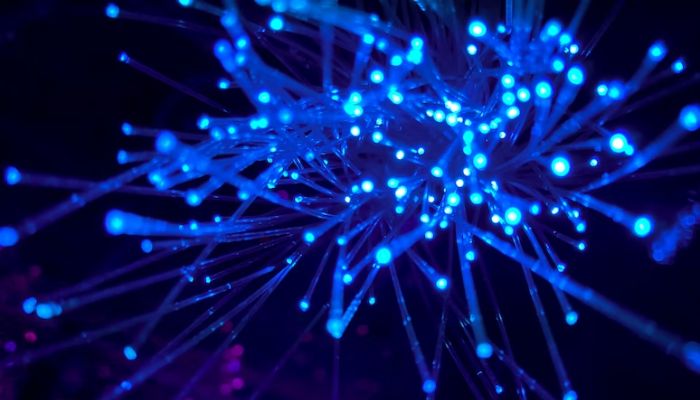Study shows blue light therapy can improve PTSD symptoms
PTSD is a mental health condition that develops after one's safety or life has been threatened seriously
November 06, 2022

BBC show Sherlock begins with Dr Watson having horrendous dreams where he is reliving his past experiences of the Afghan war. He squirms in his sleep and moves, terribly disturbed as if he is with his fellow soldiers, covered with dust and rust, shooting and being shot. Those scenes from the show are a great depiction of Post-traumatic Stress Disorder.
Post-traumatic Stress Disorder, often shortened as PTSD, is a serious mental disorder that develops after one's safety or life has been threatened seriously or after one has witnessed some kind of traumatic event.
While almost all of us have experienced a shock in some form and scary moments, some people live with those horrifying moments even after the event is over.
In the United States, nearly 6% of people suffer from PTSD.
Treatment for PTSD is complicated because patients are quite hesitant. They are reluctant to even think or feel about the event, let alone talk about it. However, treatment is quite helpful. Several types of therapy may be used such as counselling, medications like antidepressants, and interventions like EMDR.
New study
Recently, researchers from the University of Arizona and Harvard Medical School discovered a new kind of treatment. They found that exposure to blue light for 30 minutes every morning can improve sleep quality and reduce the severity of PTSD symptoms.
In PTSD patients, the size of the amygdala, which is the emotional centre of the brain, is often reduced. William D Killgore, PhD, lead author of the study and professor of psychiatry, psychology, and medical imaging said that the team observed an increase in the sign of amygdala in PTSD patients following blue light exposure.
"We found that morning blue light exposure for half an hour each day was associated with improvement in total sleep time and some aspects of sleep quality in our sample of patients with PTSD," he was quoted as saying by Medical News Today.
Symptoms of PTSD
One person with PTSD might look very different from another person with PTSD.
There are four main clusters of symptoms.
1. Intrusive thoughts
a. Nightmares.
b. Fearful thoughts.
c. Flashback to the sensation that the event is happening.
2. Avoidance
a. Refusing to discuss the event.
b. The avoidance of people and places that might remind them of that event
3. Negative alterations in mood or cognition
a. The feeling of guilt or blame.
b. Hopelessness about the future.
c. Negative thoughts about self and the world.
d. Difficulty maintaining close relationships.
e. Difficulty concentrating.
f. Inability to relate to others.
g. Memory issues.
4. Arousal and changes in reactivity
a. Sleep disturbances
b. Physical effects such as dizziness, increased heart rate, sweating, shaking, headaches, and chest pain.
c. Being easily scared or surprised.
d. Always on guard.
e. Aggression
Blue light therapy for PTSD
The authors who published their study in Frontiers in Behavioral Neuroscience recruited 82 participants who had clinically significant PTSD.
In the double-blind experiment, researchers divided participants into two groups. Half of the PSTD patients were given at-home light therapy for six weeks where they were exposed to blue light within two hours of waking up, using a blue light device. The other group used an amber light device.
“We selected blue because it is the wavelength of light that is most efficient for producing this shift in the biological clock,” Dr Killgore explained.
Sleep improvements
Initially, the team studied patients' daytime sleepiness, frequency and intensity of nightmares, and sleep quality.
After six weeks, all participants had better sleep quality and lower levels of insomnia. They reported fewer nightmares and more peaceful sleep.
However, the group with blue light also experienced a reduction in symptoms which was something that the control group did not see.
The amber-light group eventually returned to their fearful memories.
"Blue light has also been studied in TBI [traumatic brain injury] and shown to help cognitive recovery. This new study extends what we know about the benefits of light therapy to PTSD,” Dr David A. Merrill, PhD, a geriatric psychiatrist told MNT.
Authors believe that morning blue-light therapy could replace other treatments for PTSD.











